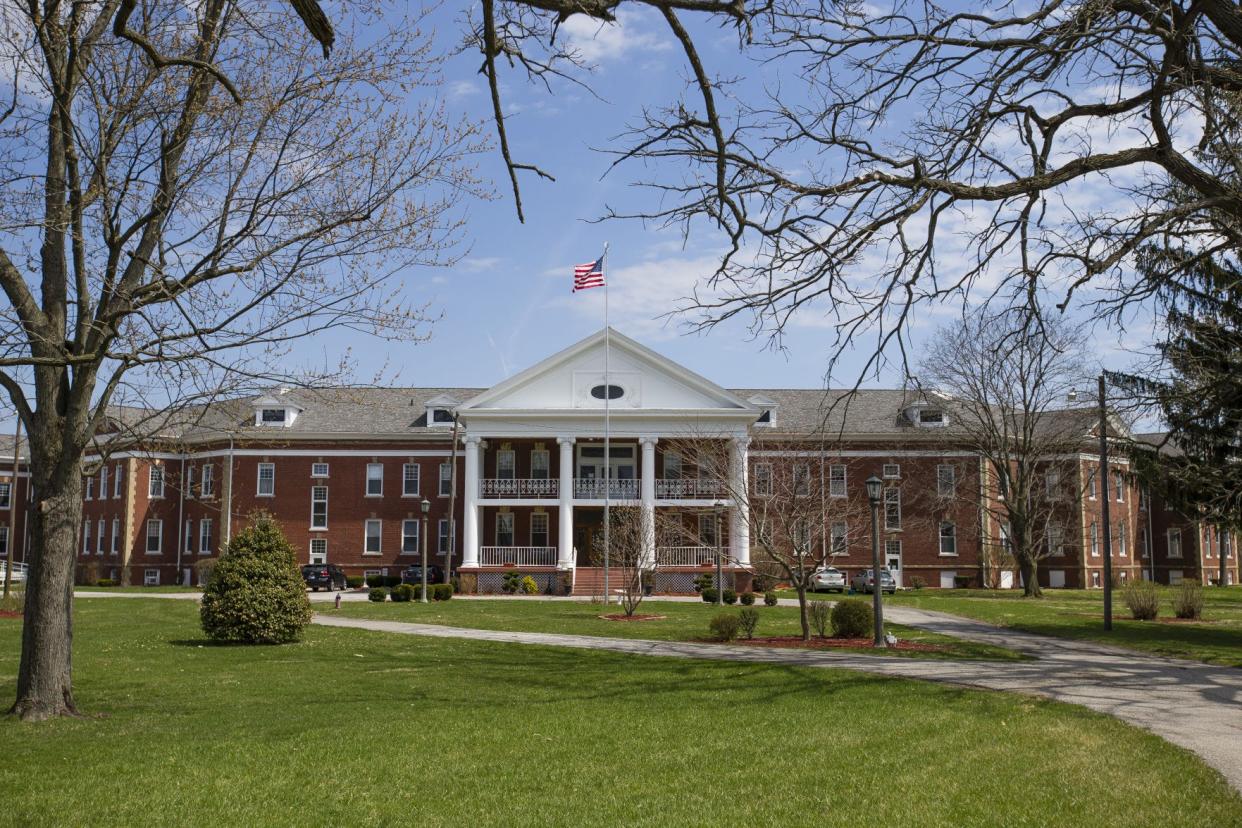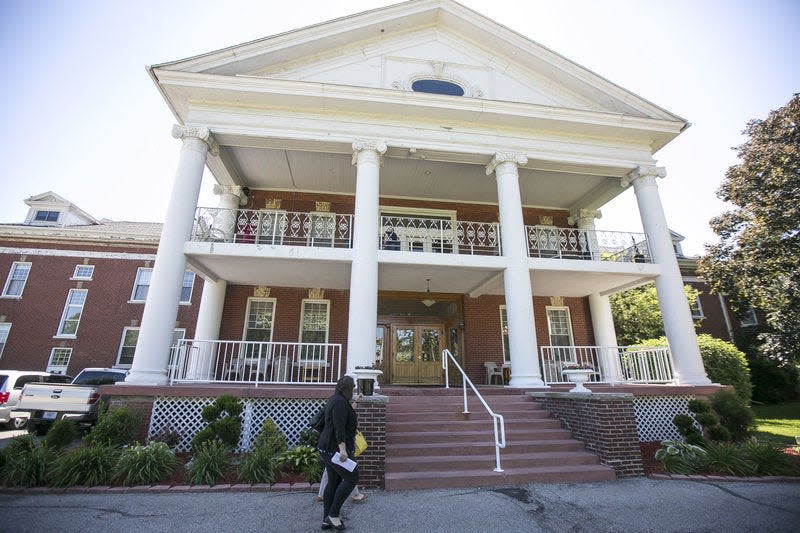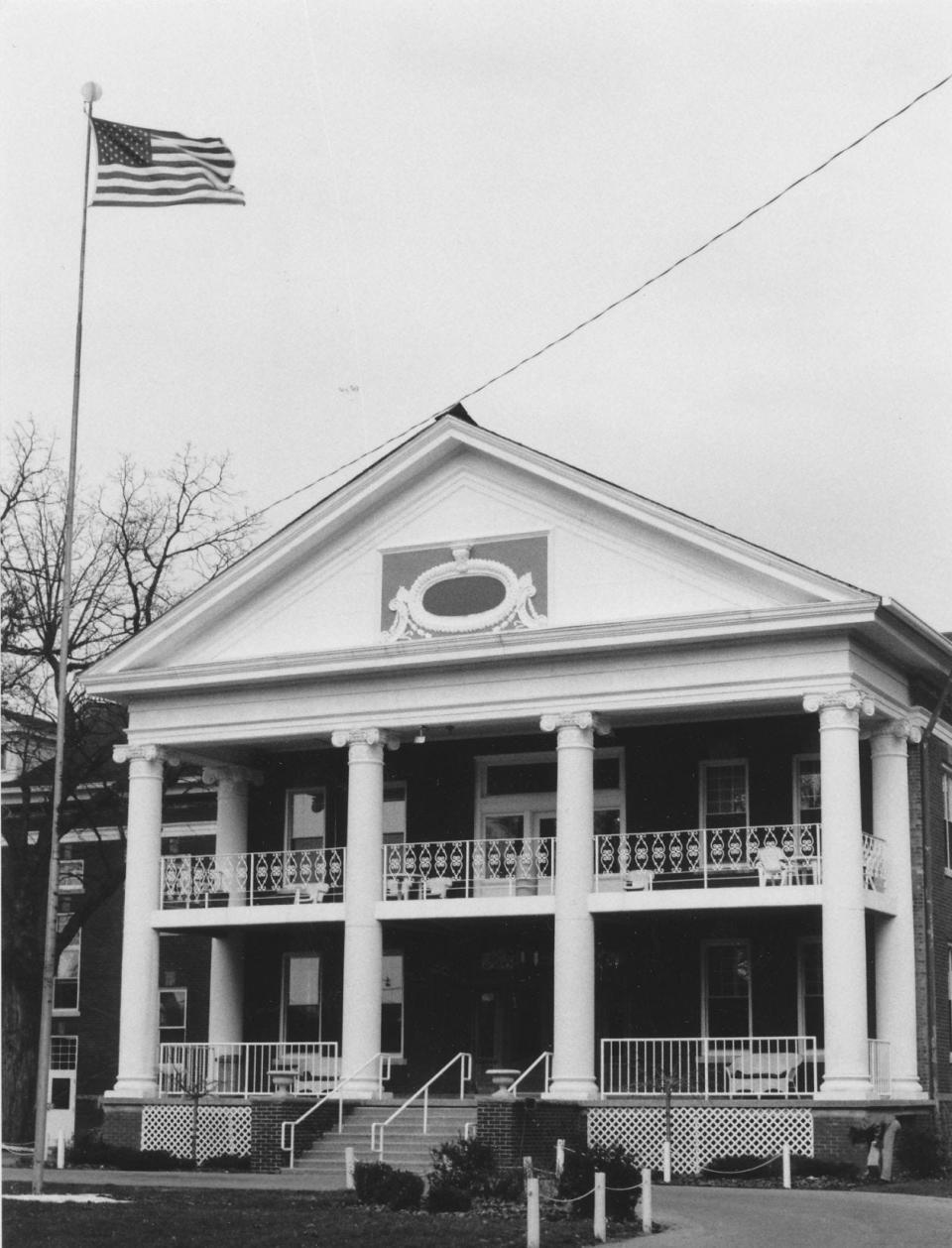'Bridge ... to the next crisis:' Without millions in cash, South Bend group home could close

SOUTH BEND — The board that oversees and ensures the future of Portage Manor, a historic and stately residential health care center in northwest South Bend, is signaling the facility could shut down without a $25 million to $32 million long-term investment from St. Joseph County.
Failing to get the money, board members say, would mean Portage Manor needs to determine where its 116 tenants — most of whom are adults with disabilities — will live.
“Frankly, half of the people at Portage Manor, I would guess, would be homeless without Portage Manor,” said Mike Misch, who's now the county attorney but previously served as vice president of the board of managers, last fall.
Because the Manor has lost $2 million in cash reserves since December 2012, its Board of Managers says it needs the St. Joseph County Council to agree later this month to invest millions in a new facility.
The hope is the facility would become financially self-sustaining because it could house more residents and garner Medicaid funding, which entails at least $21 more per person a day than the state Residential Care Assistance Program. The current building, finished in 1907, would need to meet requirements of the American with Disabilities Act and has been deemed too costly to bring into compliance.
More: New $41M building planned at group home site in South Bend
The scramble to avoid a shutdown was complicated after the director of five years left in September and the facility was left without an administrator licensed by the Indiana State Department of Health.
The newest administrator, Christine Hinz, was chosen in January to lead Portage Manor, despite being unlicensed.
Of the 14 people they interviewed to replace the former director, Misch said one had a license and was offered the position. But that candidate turned it down, and Hinz was otherwise qualified to do the work.
Frank Fotia, a county employee who is vice president of the Board of Managers, conceded that board members didn't think it would take roughly six months for her to earn a license once she found a job-shadowing program. He declined to comment on how long the board expected the process to last.
Regardless, Portage Manor has been violating Indiana code for nearly eight months by operating without a licensed administrator. Continuing to circumvent that mandate could result in significant fines or, at worst, being shut down.
This dilemma led on Tuesday to the St. Joseph County Board of Commissioners agreeing to pay Byron Wellness Systems, a comparable residential care facility in Fort Wayne, up to $80,500 to borrow one of its license-carrying employees until July 1.
The previous director of Portage Manor, Robyn Challinor, made about as much in a year as what is being paid to Byron for less than two months' worth of work.
Andy Kostielney, president of the Board of Commissioners, which owns Portage Manor, acknowledged the amount of the contract was striking.
“We don’t want to get shut down nor do we want to get fined," he said, "so we don’t have a lot of options at this point."
Challinor's salary was $80,700, public records show. The new director, Hinz, earns a salary of $95,000.
“That was the number we were given, and it's obviously very salty and not what anyone was contemplating," Misch said of the Byron contract with Debra Lambert, the CEO, who earns a salary of roughly $210,000. "But it's far cheaper to pay for that than it is to deal with getting shut down."
The agreement calls for up to $56,000 for 40 hours of work each week starting Tuesday, May 10, and a $3,500 stipend. Overtime pay of up to 10 hours a week could swell the contract by an additional $21,000, bringing the maximum cost of the deal to $80,500.
Commissioners also approved a contract of nearly $100,000 with Dinsmore & Shohl LLP, an Indianapolis law firm, to assist the Board of Managers with planning and issuing bonds to finance the new Portage Manor facility.
Hinz and co-worker Mike Eby are in the process of becoming licensed, but both are at least six months off from finishing job-shadowing requirements and passing a test.
Lambert's main responsibilities are to oversee Portage Manor and help both Hinz and Eby to become licensed. In the event neither of them is licensed by July 1 — and board members flatly state that they won't be — Lambert must also identify suitable candidates to take over full time once she moves on.
The doomed timeline means the Board of Managers will likely have to hire another full-time director in the coming months to meet the licensure mandate and avoid state penalties.
Hinz told board members last week that she's somewhat worried about losing the job she started in February.
"If we don't get a corrective action going," board president Patty Godsey replied, "nobody's gonna have a job. And our residents — half of them — are gonna be on the street."
The Byron contract "is kind of the bridge to keep us open so we can get to the next crisis,” Fotia said.
More: St. Joseph County Health Department's Christine Hinz hired to lead Portage Manor
County Council members have asked to see detailed financial projections before they approve the millions needed to build the new facility, Fotia said.
Given that Portage Manor has lost hundreds of thousands of dollars each year for roughly a decade, Fotia said the board must show how a new direction would attract more residents and eventually lead the facility to break even.
“We just need to prove to them," Fotia said, "that we aren’t building a bigger hole that they need to constantly fill with cash."
Portage Manor's history
Portage Manor, which sits on 114 verdant acres off of Portage Avenue to the west of the St. Joseph River, is one of at most 10 county homes still operating in Indiana. Each of Indiana's 92 counties once had its own; they were also known as poor farms, asylums or sanitariums.


These facilities historically have housed the elderly, ill, orphaned and physically or mentally handicapped. St. Joseph County residents who are older than 65, blind, or ages 18 to 65 with mental or physical disabilities are eligible to stay in Portage Manor.
Eby, who served as interim director from September to February, said the homes have graduated from "barbaric" treatment of people with mental illnesses to substantive long-term care. The barred cells toward the back of the building are now used for dry storage, he said, not locking away misbehaving residents.
“It’s not just somewhere to warehouse people," Eby said. "We try to do as much with them as possible. Our staff are really engaged.”
Challinor, the former director, told the Tribune she refused a pay raise and even gave herself a pay cut during her tenure in the interest of funding a different position. She describes a culture in which she and her coworkers poured their hearts into the work.
"We would dig in our own pockets and bring in what the residents needed," she said.
She left not because she didn't enjoy her role, but because she disagreed with the direction in which the Board of Managers was steering the Manor. She resigned after the board denied her an opportunity to present a plan for facility renovations to the County Council.
County homes in general have become endangered because of an obsolete state funding model, Misch said.
The Residential Care Assistance Program was periodically on hold over several years beginning in 2009, to the detriment of facilities like Portage Manor that rely on the program for nearly all of their revenue.
Madison Manor, a smaller facility run by the Madison Center, closed in 2009 because of financial strain, according to a St. Joseph County historical timeline of Portage Manor.
Two more nearby facilities closed in the following decade, with the most recent being the LaPorte County home. Portage Manor absorbed many of the vulnerable tenants and in 2018 was recognized by the state as "an example of exceptional quality which other facilities should strive to attain."
After an April state health department inspection alerted the Board of Managers that the facility couldn't remain open without a licensed administrator, Misch said the lack of housing alternatives limited how state regulators could respond.
“It was communicated to me that, basically, they would shut us down if there was somewhere else to send these people," Misch said. "They just don’t want to make a bunch of people homeless.”
The problem of where to house people who can't live independently is why several board members said "we don't have a choice" when agreeing to pay for Lambert to work temporarily.
Randy Hein added that county leaders aren't likely to consider adding 50 more people to the area's strained emergency housing system as a viable option.
“I think this is a step that we have to take that doesn’t tell us what’s gonna happen at the end of two months," said board member Charles Leone.
"So we are kicking the can down the road," he continued, "but in order just to stay alive, we have to do this."
Email South Bend Tribune city reporter Jordan Smith at JTsmith@gannett.com. Follow him on Twitter: @jordantsmith09
This article originally appeared on South Bend Tribune: South Bend's Portage Manor group home could close without investment

